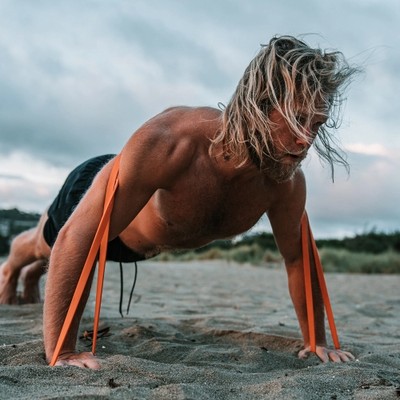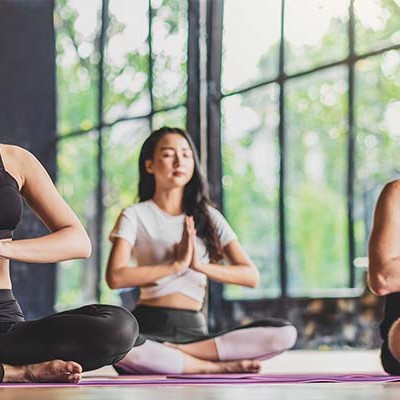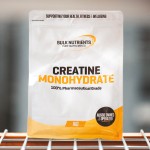How Seasons Effect Our Mental Health and What to Do About It

How the change of seasons and "SADS" affect our mental health
The other issue we face is a change in season, and specifically, SADS, which stands for seasonal affective disorder. This is a depressive disorder that starts as sunlight decreases during the short dark days of winter and is commonly known as the "winter blues." Those who suffer from it report a sad mood and low energy.
But the good news is there are ways to help combat the associated feelings that come with lockdowns and SADS.
How Covid-19 Lockdowns Impacted Mental Health
Whilst lockdowns are essential for containing Covid-19, research shows they are having a significant negative impact on people. 20,720 participants in Italy were questioned, with 12.4% of respondents reporting severe or extremely severe levels of depressive symptoms, 17.6% reporting anxiety symptoms, and 41.6% reporting feeling at least moderately stressed by lockdowns.
In the UK, more than one in six adults increased their alcohol consumption during the lockdown, and a larger proportion of these were younger adults. The researchers reported that the "increased alcohol consumption was independently associated with poor overall mental health, increased depressive symptoms and lower mental wellbeing."
Improving your mental health with exercise
We all know this feeling: training and feeling amazing at the end of it. Exercise and its direct effect on our mental wellbeing is no secret at all:
"Exercise improves mental health by reducing anxiety, depression, and negative mood and by improving self-esteem and cognitive function. Exercise has also been found to alleviate symptoms such as low self-esteem and social withdrawal."
During lockdowns, gyms are obviously closed, but we can improvise accordingly. With a home barbell, we are able to train either inside, outside, or at a nearby park. A home barbell allows you to perform a variety of exercises for all muscle groups, whilst at the same time placing you in the outdoors ready for a walk.
Research shows that thirty minutes of exercising at a moderate intensity, such as brisk walking for 3 days a week, is sufficient for the following health benefits:
- Improved sleep
- Increased interest in sex
- Better endurance
- Stress relief
- Improvement in mood
- Increased energy and stamina
- Reduced tiredness that can increase mental alertness
- Weight reduction
- Reduced cholesterol and improved cardiovascular fitness

And resistance training for 45-60 minutes, 3-5 times a week, is also beneficial. We must train according to our experience level, starting with shorter workouts and working our way up.
And performing this resistance training or walking outside can be very beneficial too, due to the healthy exposure to vitamin D from the sun.
Research shows that vitamin D increases mood and reduces depression. This study was a randomised double-blind trial and concluded that higher levels of vitamin D in the blood reduced depression symptoms. To add more weight to these findings, multiple other studies show that a deficiency in vitamin D was more common in those with depression and anxiety.
How much sun do we need for a healthy amount of vitamin D?
Studies show that for those with fair skin, a 6-7 minute walk with arms exposed to sunlight in mid-afternoon or morning during summer is ideal. But during winter, we'll need as much exposure as possible for 7-40 minutes at noon.
And it's critical we support our training (particularly if we're just starting out) with two reliable and worthy supplements:
And we've got you covered with both; our Whey Protein Concentrate comes in many flavours you're bound to love, whilst we've got plenty of Creatine Monohydrate that's ready when you are.

The bottom line is that changes in seasons can have impacts on our mental health, which were exacerbated by extended Covid-19 lockdowns. By exercising frequently and getting out into the sun, we're taking steps to improve our mental health. Walking for 30 minutes three times per week is beneficial. Additional weight training is a great bonus and is recommended. Moreover, by supporting our training with whey protein and creatine, we're ensuring we get the most out of that, too.
In terms of getting enough vitamin D, for those with fair skin, a 6-7 minute walk with arms exposed to sunlight in mid-afternoon or morning during summer is ideal. But during winter, we'll need as much exposure as possible for 7-40 minutes at noon.

Dayne Hudson
Like many, Dayne was once desperate to lose weight and get into shape. But everyone he asked, everything he read, lead to the same place... nowhere.
His journey started there - researching science journals and completing a Sports Nutrition Specialist qualification so he could make weight loss easier.
References:
- Armstrong, D.J., Meenagh, G.K., Bickle, I. et al. Vitamin D deficiency is associated with anxiety and depression in fibromyalgia. Clin Rheumatol 26, 551–554 (2007). https://link.springer.com/article/10.1007/s10067-006-0348-5
- Cooper R, Naclerio F, Allgrove J, Jimenez A. Creatine supplementation with specific view to exercise/sports performance: an update. J Int Soc Sports Nutr. 2012;9(1):33. Published 2012 Jul 20. doi:10.1186/1550-2783-9-33
- Fiorillo A, Sampogna G, Giallonardo V, et al. Effects of the lockdown on the mental health of the general population during the COVID-19 pandemic in Italy: Results from the COMET collaborative network. Eur Psychiatry. 2020;63(1):e87. Published 2020 Sep 28. doi:10.1192/j.eurpsy.2020.89
- Jacob L, Smith L, Armstrong NC, Yakkundi A, Barnett Y, Butler L, McDermott DT, Koyanagi A, Shin JI, Meyer J, Firth J, Remes O, López-Sánchez GF, Tully MA. Alcohol use and mental health during COVID-19 lockdown: A cross-sectional study in a sample of UK adults. Drug Alcohol Depend. 2021 Feb 1;219:108488. doi: 10.1016/j.drugalcdep.2020.108488. Epub 2020 Dec 28. PMID: 33383352; PMCID: PMC7768217.
- Melrose S. Seasonal Affective Disorder: An Overview of Assessment and Treatment Approaches. Depress Res Treat. 2015;2015:178564. doi:10.1155/2015/178564
- Nowson CA, McGrath JJ, Ebeling PR, Haikerwal A, Daly RM, Sanders KM, Seibel MJ, Mason RS; Working Group of Australian and New Zealand Bone and Mineral Society, Endocrine Society of Australia and Osteoporosis Australia. Vitamin D and health in adults in Australia and New Zealand: a position statement. Med J Aust. 2012 Jun 18;196(11):686-7. doi: 10.5694/mja11.10301. PMID: 22708765.
- Pasiakos SM, McLellan TM, Lieberman HR. The effects of protein supplements on muscle mass, strength, and aerobic and anaerobic power in healthy adults: a systematic review. Sports Med. 2015 Jan;45(1):111-31. doi: 10.1007/s40279-014-0242-2. PMID: 25169440.
- Sharma A, Madaan V, Petty FD. Exercise for mental health. Prim Care Companion J Clin Psychiatry. 2006;8(2):106. doi:10.4088/pcc.v08n0208a
Related Blogs

How to Workout at Home for Beginners
Posted by Bulk Nutrients
Estimated reading time: 8 minutes

Looking After Your Mental Health During the Pandemic
Posted by Bulk Nutrients
Estimated reading time: 11 minutes

How Physical Activity Can Change Your Brain (For the Better)
Posted by Mason Brezinscak
Estimated reading time: 6 minutes






























